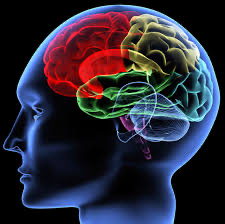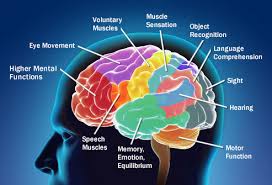There are several ways to improve memory, here are a few strategies that have been shown to be effective:

- Get regular exercise: Physical activity helps to increase the production of chemicals in the brain that support the growth of new brain cells and the formation of new connections between them.
- Get enough sleep: Sleep is essential for memory consolidation, the process by which information is transferred from short-term memory to long-term memory.
- Stay mentally active: Challenging your brain with activities such as puzzles, reading, and learning new skills can help to improve memory and cognitive function.
- Practice mnemonic techniques: Mnemonic devices are memory aids that can help you remember information more easily.
- Try spacing effect: Instead of trying to cram information, spread out your study sessions over several days or weeks. This will give your brain more time to process the information and make it more likely to be retained in long-term memory.
- Eat a healthy diet: Eating a diet that is rich in fruits, vegetables, and healthy fats can help to support brain health and improve memory.
- Take supplements: Some studies suggest that taking supplements such as omega-3 fatty acids and antioxidants may help to improve memory and cognitive function. But be careful in taking supplement as some may have serious side effects if taken with other medications.
Several vitamins and minerals have been shown to be beneficial for memory and cognitive function. These include:

-
Vitamin B12: This vitamin is essential for the production of the neurotransmitters that carry signals between nerve cells in the brain. Low levels of vitamin B12 have been linked to cognitive decline and memory loss.
-
- Vitamin E: This antioxidant helps to protect the brain from damage caused by free radicals. Some studies have suggested that vitamin E may help to improve cognitive function in older adults.
- Vitamin D: Low levels of vitamin D have been linked to an increased risk of cognitive decline and dementia. Getting enough vitamin D, either through sunlight exposure or through the diet, is important for brain health.
- Folate: Folate is important for proper brain function and the production of the neurotransmitters that carry signals between nerve cells in the brain.
- Fish oil contains omega-3 fatty acids, DHA and EPA, are important for brain health and cognitive function.
However, it is important to note that taking high doses of any vitamin or mineral supplement can be harmful, so it is best to consult with your doctor or a qualified healthcare professional before starting any supplement regimen. They can recommend safe dosages and also check for any interactions with any medications you may be taking.
Eating a balanced diet that includes certain foods can help to support brain health and improve cognitive function. Here are a few examples of brain-boosting foods:
- Berries: Berries, particularly blueberries and strawberries, are rich in antioxidants, which help to protect the brain from damage caused by free radicals.
- Leafy green vegetables: Vegetables like kale, spinach, and broccoli are high in vitamins and minerals, including folate, which is important for proper brain function.
- Fish: Fish, particularly fatty fish like salmon, is a good source of omega-3 fatty acids, which have been shown to be beneficial for brain health and cognitive function.
- Nuts and seeds: Nuts and seeds are rich in healthy fats, antioxidants, and other nutrients that support brain health.
- Whole grains: Whole grains are a good source of energy for the brain and contain a range of vitamins, minerals and antioxidants.
- Eggs: Eggs, specially the yolk, are a good source of choline which is important for the formation of acetylcholine, a neurotransmitter that is important for memory and cognitive function.
- Avocado and Olive Oil: The monounsaturated fats in Avocado and Olive Oil promote healthy blood flow to the brain which is essential for memory and learning.
Remember, moderation is key when it comes to diet. It’s important to enjoy a variety of nutrient-dense foods, rather than relying on any one food or nutrient to promote brain health. Also it’s essential to consult your doctor or a qualified healthcare professional for a personalized dietary plan that takes into account any medical conditions or allergies you may have.







